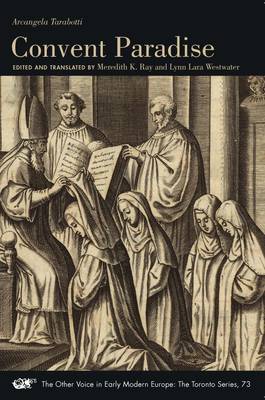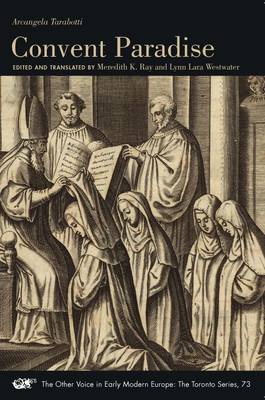
- Afhalen na 1 uur in een winkel met voorraad
- Gratis thuislevering in België vanaf € 30
- Ruim aanbod met 7 miljoen producten
- Afhalen na 1 uur in een winkel met voorraad
- Gratis thuislevering in België vanaf € 30
- Ruim aanbod met 7 miljoen producten
Zoeken
Omschrijving
The radical Venetian writer Arcangela Tarabotti (1604-1652), compelled against her will to become a nun, is well known for her scathing attacks on patriarchal institutions for forcing women into convents. Convent Paradise (1643), Tarabotti's first published work, instead invites the reader into the cloister to experience not only the trials of enclosure, but also its spiritual joys. In stark contrast to her other works, Convent Paradise aims to celebrate the religious culture that colored every aspect of Tarabotti's experience as a seventeenth-century Venetian and a nun. At the same time, this nuanced exploration of monastic life conveys a markedly feminist spirituality. Tarabotti's meditative portrait of the convent enriches our understanding of her own life and writing, while also providing a window into a spiritual destiny shared by thousands of early modern women. The Other Voice in Early Modern Europe - The Toronto Series volume 73
Specificaties
Betrokkenen
- Auteur(s):
- Vertaler(s):
- Uitgeverij:
Inhoud
- Aantal bladzijden:
- 287
- Taal:
- Engels
- Reeks:
Eigenschappen
- Productcode (EAN):
- 9780866986267
- Verschijningsdatum:
- 18/02/2020
- Uitvoering:
- Paperback
- Formaat:
- Trade paperback (VS)
- Afmetingen:
- 152 mm x 226 mm
- Gewicht:
- 521 g

Alleen bij Standaard Boekhandel
+ 118 punten op je klantenkaart van Standaard Boekhandel
Beoordelingen
We publiceren alleen reviews die voldoen aan de voorwaarden voor reviews. Bekijk onze voorwaarden voor reviews.











